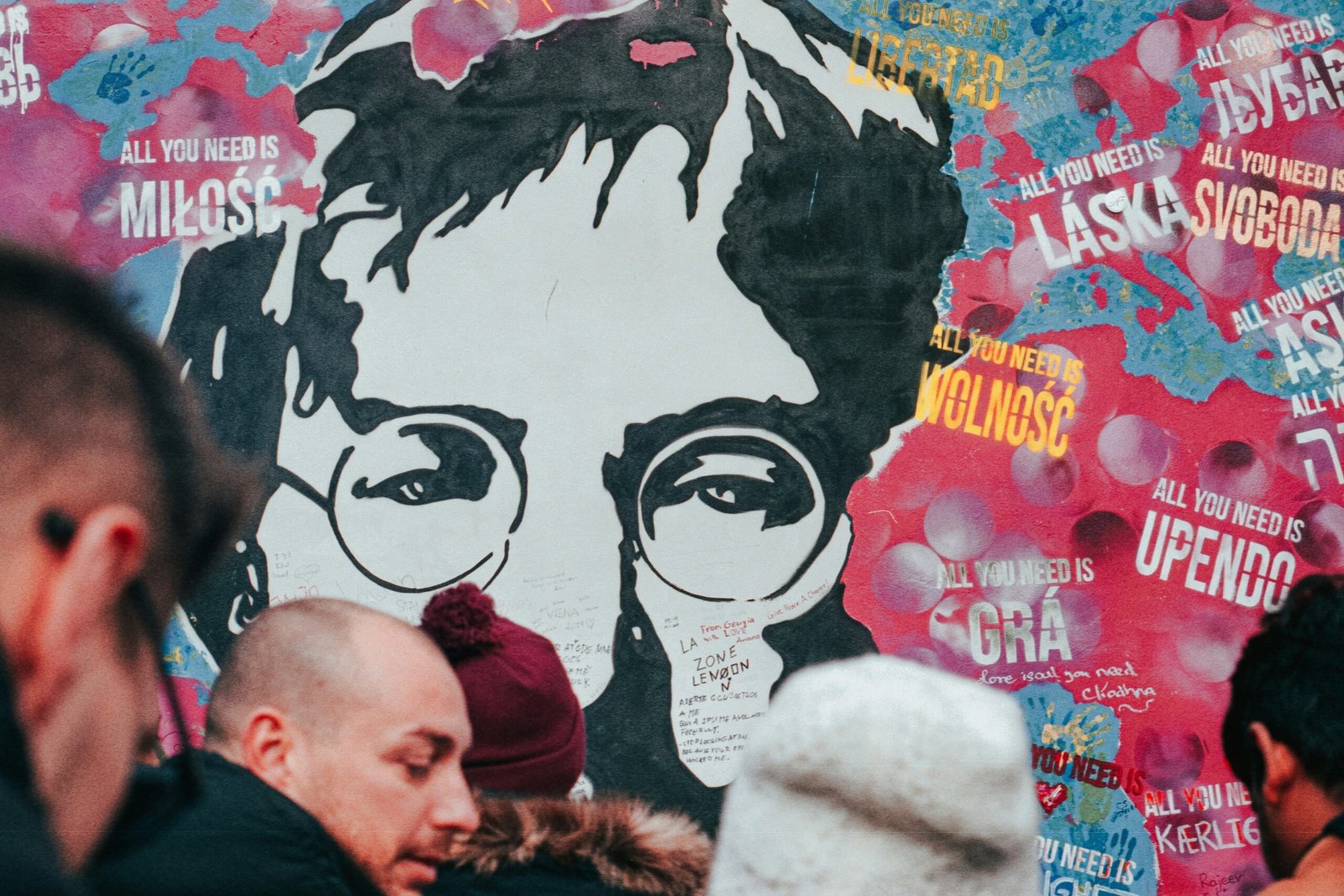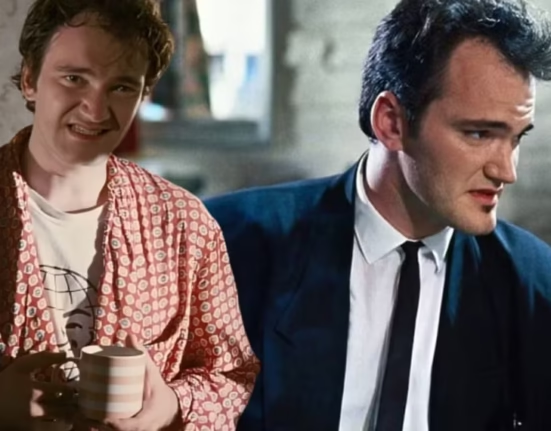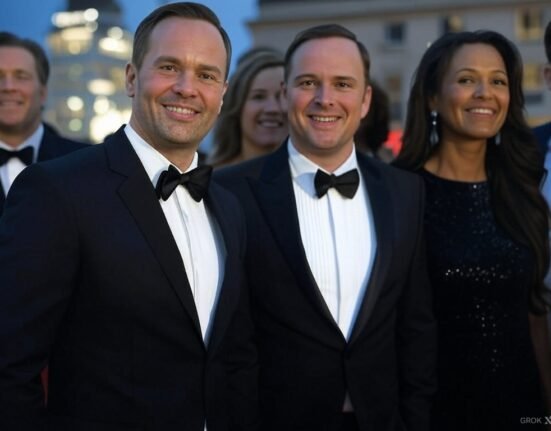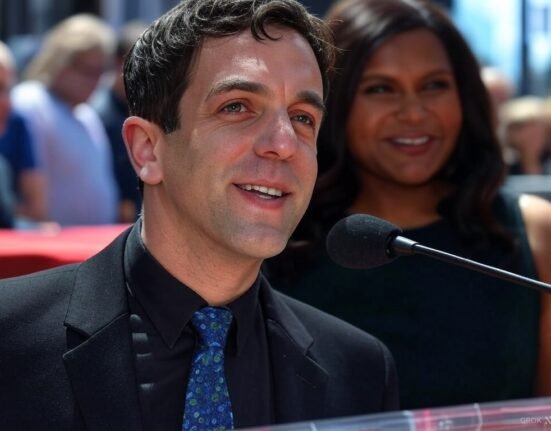The Kennedy Center Honors stands as one of the preeminent institutions in the United States that recognize and celebrate outstanding lifetime artistic achievements across diverse fields. Established in 1977, this prestigious event was initiated to honor individuals who have made significant contributions to the cultural heritage of America through the performing arts, including music, dance, theater, and film. Every year, the Honors celebrate a select group of artists, reaffirming their influence on the evolving landscape of American art and culture.
The significance of the Kennedy Center Honors lies not only in the acknowledgment of the honorees’ remarkable work but also in fostering a deeper appreciation for the arts among the public. It serves as a reminder of the vital role that artists play in society, encouraging future generations to pursue creativity and innovation. The ceremony has become a beloved tradition that highlights the dedication and passion of those who have devoted their lives to artistic expression.
The gathering at the Kennedy Center not only celebrates the honorees but also serves to inspire and engage audiences, promoting an ongoing dialogue about the importance of artistic endeavor. As the event progresses, the legacy of previous honorees intertwines with current achievements, demonstrating the timeless impact of artistry on the human experience.
Honoring The Grateful Dead
The Grateful Dead, an iconic rock band formed in the 1960s, has left an indelible mark on the cultural fabric of America. Known for their eclectic musical style, which blends elements of rock, folk, bluegrass, and jazz, the band transcended the traditional boundaries of musical genres. Their unique approach to live performances, characterized by improvisation and a devoted fan base known as “Deadheads,” revolutionized the concert experience and set a benchmark for live touring artists in the music industry.
During the Kennedy Center Honors ceremony, The Grateful Dead was celebrated for their substantial contributions to music and culture. The event was marked by heartfelt tributes from various artists who have drawn inspiration from the band’s rich catalog. Performances of beloved songs, such as “Ripple” and “Truckin’,” created an atmosphere of nostalgia, allowing attendees to reflect on the band’s influence over the years. Each rendition captured the essence of The Grateful Dead’s music, showcased the band’s improvisational spirit, and resonated deeply with both fans and fellow musicians alike.
In their acceptance speeches, surviving band members shared personal anecdotes, highlighting the communal and transformative essence of their music. They emphasized the power of the Grateful Dead’s songs to connect people from diverse backgrounds, creating a sense of unity and community through shared experiences. The tribute underscored not only the band’s lasting legacy but also their role in shaping the live music landscape and fostering a cultural movement that still thrives today.
As the ceremony concluded, the celebration of The Grateful Dead served as a reminder of their profound impact on music and their ongoing relevance in contemporary culture. Their legacy continues to inspire new generations of musicians and music aficionados, ensuring that their contributions will be cherished for years to come.
Francis Ford Coppola: A Visionary Director
Francis Ford Coppola is widely recognized as a pioneering figure in the realm of cinema, whose contributions have significantly shaped the landscape of modern filmmaking. His artistic journey began in the 1960s, and he has since crafted a body of work that transcends generations. Notably, Coppola is celebrated for directing iconic films such as “The Godfather” trilogy and “Apocalypse Now,” both of which remain quintessential examples of exceptional storytelling and character development. These works not only garnered critical acclaim but also fostered a cultural conversation that resonates to this day.
Coppola’s approach to filmmaking is characterized by a profound emphasis on narrative depth and realism. His ability to interweave complex characters with intricate plots has set a benchmark in the industry, influencing countless directors and screenwriters who have followed in his footsteps. His hallmark style combines grandeur with intimate storytelling, creating epic tales that delve into the human experience. The richness of his films extends beyond entertainment, offering viewers profound insights into morality, power, and the nature of family bonds.
Throughout his illustrious career, Coppola has received numerous accolades, including multiple Academy Awards and Golden Globes. His tenure has not only been marked by commercial success but also by the artistic integrity of his projects. Coppola’s films have consistently embraced innovative techniques, such as the use of non-linear narratives and groundbreaking cinematography, which have inspired the evolution of cinematic art. As a result, his influence can be seen across various genres and styles in contemporary cinema.
His recent recognition at the Kennedy Center Honors highlights the enduring impact of his work in the film industry. This tribute serves as a testament to his remarkable legacy, celebrating a director whose vision has reshaped the narrative potential of the medium, ensuring that his contributions will be cherished for many years to come.
Bonnie Raitt: The Voice of a Generation
Bonnie Raitt has long been regarded as a powerful force in the American music landscape, blending elements of blues, rock, and folk into a sound uniquely her own. With a career spanning over five decades, Raitt has garnered critical acclaim not only for her extraordinary vocal talent but also for her exceptional skills as a guitarist. Her ability to seamlessly navigate various genres has allowed her to resonate with audiences of all ages, solidifying her status as an iconic figure and a voice of a generation.
From her early beginnings in the 1970s, Bonnie Raitt defied conventions and blazed trails for women in the music industry. During a time when female artists were often relegated to a narrow range of styles and roles, Raitt proudly showcased her versatility, embracing the deep emotional roots of blues while also incorporating rock and pop influences. Her breakthrough album, “Nick of Time,” released in 1989, marked a significant moment in her career, winning multiple Grammy Awards and reigniting mainstream interest in her work. This album not only highlighted her artistic evolution but also showcased her resilience in an ever-changing industry.
Raitt’s recognition at the Kennedy Center Honors is a testament to her impactful legacy and enduring influence. During the ceremony, her heartfelt acceptance speech and emotional moments served as reminders of the struggles she faced and the victories she achieved along her journey. The honors bestowed upon her celebrate not just her individual accomplishments but also her role in inspiring future generations of musicians, particularly women who seek to assert their voice within the industry. Bonnie Raitt’s indelible mark on music and culture underscores the significance of her recognition, reminding us all of the power of artistry in driving social change.
Arturo Sandoval: Jazz Legend Recognized
Arturo Sandoval, an esteemed jazz trumpeter, pianist, and composer, has solidified his place in the pantheon of music through an illustrious career that spans several decades. Born in Artemisa, Cuba, in 1949, Sandoval’s early musical journey began under the tutelage of his mentor, the iconic jazz musician Dizzy Gillespie. This pivotal relationship not only orchestrated Sandoval’s passion for jazz but also served as a bridge between his Cuban roots and the wider jazz community, ultimately shaping his unique musical style that blends Cuban rhythms with jazz improvisation.
Sandoval’s fervent commitment to jazz has led him to explore various genres, including classical and Afro-Cuban music, making him a versatile artist. He is renowned for his virtuosic trumpet technique and passionate performances, which resonate deeply with audiences worldwide. His ability to blend genres showcases his innovative spirit and provides a musical vocabulary that transcends cultural boundaries. Furthermore, Sandoval’s compositions often reflect his life experiences, encapsulating the essence of his Cuban heritage while celebrating the universal language of jazz.
The recognition of Arturo Sandoval at the Kennedy Center Honors is a testament to his monumental contributions to the world of jazz music. This prestigious acknowledgment serves not only to honor Sandoval’s artistic achievements but also to highlight the significant influence that jazz has had on the American music landscape. By celebrating artists like Sandoval, the Kennedy Center reinforces the importance of diversity within the arts and reminds us of jazz’s ability to unite people from varied backgrounds. Consequently, his honor represents a culmination of hard work, passion, and dedication that inspires aspiring musicians around the globe, ensuring that the legacy of jazz continues to thrive for generations to come.
The Apollo Theater: Celebrating Black Artistic Legacy
The Apollo Theater, located in Harlem, New York City, stands as a monumental institution in the landscape of American culture, particularly in relation to the African American artistic legacy. Founded in 1934, the Apollo has played a pivotal role in shaping the careers of numerous influential artists and musical genres. As a cradle for talent, it served as an essential platform for African American performers to showcase their skills in a time when opportunities were often limited due to racial segregation and discrimination.
Throughout its history, the Apollo has been synonymous with the promotion of African American culture through the arts. Groundbreaking performers such as Ella Fitzgerald, Billie Holiday, and James Brown first captured the attention of wider audiences on its storied stage. The theater was not only a venue for performance but also a gathering place that fostered community spirit and cultural pride. The famed “Amateur Night” has been particularly significant; it has aided in launching countless careers and allowed aspiring performers to gain exposure and recognition.
The Apollo Theater also reflects the cultural movements that emerged alongside civil rights initiatives, acting as a significant backdrop for advocacy through art. Its exhibitions and programs have evolved, but the theater remains a steadfast champion for African American artists and the continuing evolution of American music, including genres such as jazz, soul, R&B, and hip-hop. As part of the Kennedy Center Honors tribute, the Apollo’s legacy is rightfully acknowledged, signifying the importance of recognizing and celebrating African American contributions to the arts. The theater not only celebrates its rich history but also serves as an inspiration for future generations of artists determined to make their mark.
The Performances: A Night to Remember
During the 2023 Kennedy Center Honors, the evening was filled with an electrifying atmosphere as performances played a central role in celebrating the honorees: Francis Ford Coppola, The Grateful Dead, Bonnie Raitt, Arturo Sandoval, and The Apollo Theater. Each performance was meticulously crafted to pay homage to the artistic contributions of these legends, ensuring that the audience experienced an unforgettable night brimming with talent and emotion.
The energy in the auditorium was palpable as renowned artists took to the stage to interpret the works and passions of the honorees. Legendary musicians paid tribute to The Grateful Dead with soulful renditions of beloved classics that had the crowd swaying in delight. Similarly, Bonnie Raitt’s heartfelt performance brought a sense of nostalgia as she captivated the audience with her signature sound, embodying the spirit of her artistry. The celebration of Arturo Sandoval showcased a vibrant blend of jazz and Latin rhythms, impressing attendees with the virtuosity and charm that have defined his career.
As the night progressed, moments of collaboration and surprise appearances heightened the excitement. The performances were punctuated by personal anecdotes and expressions of gratitude from both the artists and the honorees, reflecting a shared reverence for each other’s craft. The Apollo Theater, in its recognition, lit up with a medley of performances that honored its legacy in bridging communities through the arts. The essence of the evening was not merely in the performances themselves but in the collective celebration of creativity that brought together both past and present icons in a toast to enduring artistry.
Each segment of the night told a story, merging music with heartfelt tributes, creating a dynamic tapestry of cultural homage. It was a night where the stars aligned, and their collective contributions echoed throughout, reminding everyone in attendance of the powerful impact of art on society.
Celebrity Presence and Testimonials
The Kennedy Center Honors presented a memorable evening, attracting an impressive roster of celebrities from various entertainment sectors. Among those in attendance were celebrated actors, musicians, and industry influencers, each bringing their unique perspective to the event that honored the key figures in the arts: Francis Ford Coppola, The Grateful Dead, Bonnie Raitt, Sandoval, and The Apollo Theater. This gathering not only celebrated the honorees but also underscored the impact these legends have had on the fabric of American culture.
As the night unfolded, the excitement in the air was palpable. Renowned actor Morgan Freeman expressed his admiration for the honorees, stating, “Each of these artists has redefined their craft, influencing countless lives along the way.” He emphasized the importance of the honorees in inspiring new generations of artists. Similarly, pop icon Madonna shared her thoughts, highlighting the significant contributions of The Grateful Dead to the music scene. “They cultivated a culture of community and connection through their music, shaping the very essence of live performance,” she remarked.
Musician John Legend also took a moment to reflect on the legacy of Bonnie Raitt, noting, “Bonnie’s voice and songwriting have transcended time; she’s a true poet of our generation.” Additionally, the attendance of notable figures like Aretha Franklin’s family underscored the intergenerational admiration felt for these artistic icons. Moreover, many celebrities expressed gratitude for the opportunity to honor these legends, reinforcing the night’s overarching theme of reverence for lasting artistry.
The testimonials echoed a shared acknowledgment of the honorees’ monumental contributions to entertainment, solidifying their legacies within the industry. This gathering was not simply a tribute; it was a celebration of the enduring spirit of creativity that each honoree embodies.
Conclusion: Legacy and Impact
The Kennedy Center Honors tribute to Francis Ford Coppola, The Grateful Dead, Bonnie Raitt, Arturo Sandoval, and The Apollo serves as a poignant reminder of the enduring legacy these artists have crafted over the years. Each honoree has made significant contributions to the arts, influencing generations of creators and enriching cultural dialogue through their work. This annual event not only celebrates individual achievements but also highlights the collective cultural fabric that these icons have helped weave.
Francis Ford Coppola’s cinematic vision and innovative storytelling techniques have redefined the film landscape, paving the way for contemporary directors. His work, marked by its complexity and emotional depth, continues to inspire filmmakers and audiences alike. Similarly, The Grateful Dead, with their unique blend of rock, folk, and improvisational music, have left an indelible mark on the musical world, cultivating a passionate fan base that spans decades. Bonnie Raitt’s soulful musicianship and activism have highlighted the power of music as a means for social change, while Arturo Sandoval represents the vibrant vitality of Latin jazz, pushing musical boundaries and fostering cross-cultural connections.
The Apollo Theater, an iconic venue of African American culture, has played a vital role in nurturing and showcasing talent, from Ella Fitzgerald to contemporary artists. This tribute not only honors the individual legacies of these honorees but also underscores the importance of preserving such cultural milestones. It is crucial for society to recognize and celebrate the arts, as they embody the collective history and identity of communities. Efforts like the Kennedy Center Honors encourage appreciation for the transformative power of the arts, ensuring that future generations will have the opportunity to engage with and learn from this rich artistic heritage.













Leave feedback about this